International Clients
Posted by Wei Min Tan on February 28, 2024
Part 1: Overview for the Foreign Investor interested in New York property
Why New York
Manhattan is the most expensive, most stable and most recognized market in the U.S. When compared to global cities, the esteemed Knight Frank Wealth Report consistently ranks Manhattan as either the #1 or #2 city globally (Manhattan always competes with London for the top spot). The ranking is based on factors including wealth, investments and lifestyle. Meanwhile, property prices in Manhattan is less expensive when compared to cities like London, Paris and Singapore.
Read about Wei Min’s style in Best Manhattan property agents and his article on Benefits and risks of investing in Manhattan property
Can foreigners buy property in Manhattan, New York?
Yes. Our foreign clients buy property in Manhattan because of brand value and stable price appreciation. They often purchase as vacation home or as investment property. Our clients are business owners or corporate executives and the main reason for buying in Manhattan is for asset diversification. The property can be held under personal name or through an entity such as a Corporation or Limited Liability Company (LLC). We will discuss the pros and cons with each client.
Deal Example: Halcyon, 305 E 51 St. Represented multiple buyers at price points between $1.7 million to $5 million. Reserved at pre-construction stage. Rented at premium rents after completion. Close to United Nations, Citigroup Center, Blackstone, Blackrock, Chase.
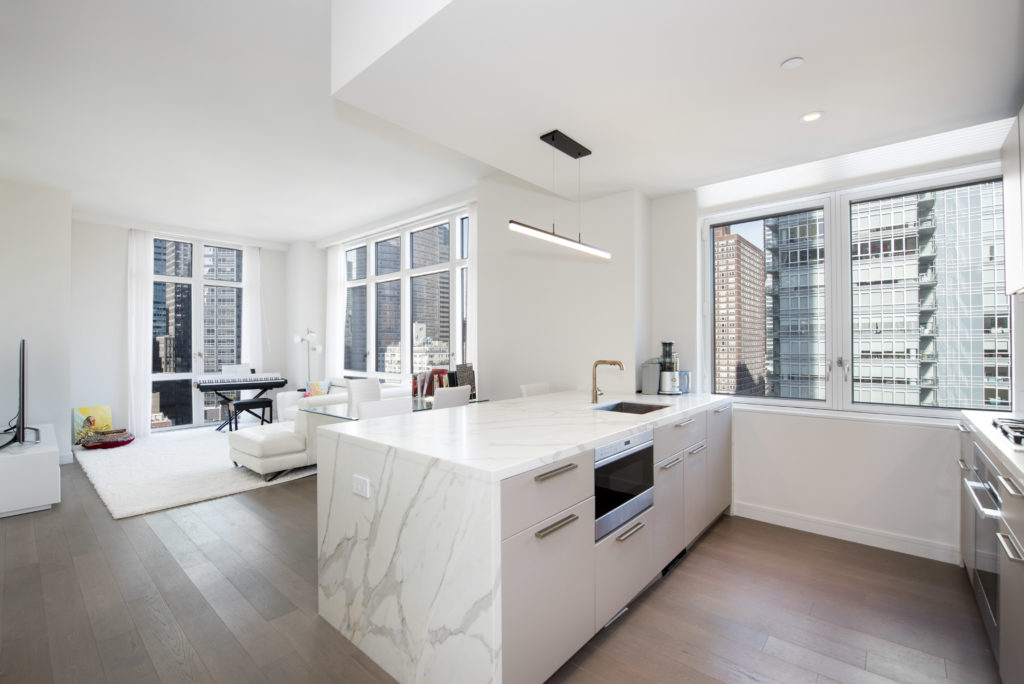
Reach out to Wei Min for an introductory chat, tan@castle-avenue.com
What type of properties are popular among foreign / international buyers?
There are two categories of apartments – condominiums and cooperatives. We recommend condos because of the higher appreciation and investment values. Cooperative (co-op) buildings often restrict the ability to rent and perform renovations. This reduces their attractiveness as an investment property. The process of buying a co-op is subject to board approval which prolongs the buying process. Further, a co-op board may even reject a buyer.
The value of a condo, on a per square foot basis, is about 30 to 50 percent higher than that of a co-op. However, the appreciation potential and demand for condos are higher as well.
Condos in Manhattan are 99 percent freehold (as opposed to leasehold). The exceptions are Battery Park City where the land is leasehold, and a few buildings scattered here and there. New York’s property structure is unlike the British system where the concept of leasehold is a lot more prevalent. In the U.S., most people won’t know what leasehold means.
Besides apartments, our clients also purchase commercial mixed-use and multifamily buildings. Condos are more popular because they are easier to manage and simple to understand.
Deal example: Investor client’s 3-bedroom condo in Tribeca, targeting renter demand for larger apartments post Covid. Rented out immediately after closing.

What are expenses associated with owning a property in Manhattan?
For apartments, the main monthly expenses are:
(i) property taxes
(ii) common charges
(iii) insurance
(iv) if financing is used, mortgage principal and interest.
Annual taxes are between 0.5 to 1 percent of property value. Common charges average $1 to $2 per square foot per month and go up or down depending on number of units and amenities. Insurance is about $500 to $1,500 per year.
Expenses for mixed use or multifamily buildings are higher and include taxes, insurance, maintenance, repairs, property management and others.
Deal example: Client purchased this new launch property at 111 Murray. Then rented out after closing at premium rents. Exceptional location opposite Goldman Sachs (green building opposite) was a key driver behind our decision.

Financing for foreign / international buyers
Mortgage loan financing is available and can be obtained either through a U.S. or non-U.S. bank. Since the 2009 credit crisis, lenders have tightened credit criteria and will require about 40 percent as down payment from a foreign buyer.
Financing allows the ability to leverage funds, thereby magnifying returns. For example, if an investor buys one condo at $1 million in cash, he gets the appreciation benefit of only one apartment. But if the investor obtains mortgage financing and only puts 50% down payment, he can actually buy two apartments, effectively benefiting from the appreciation of two properties with the same equity investment.
The two ways of arranging financing are:
-
- Financing from U.S. lender
This option is easily arranged through a bank in the U.S. The requirement is usually a 40 percent down payment (60 percent Loan-to-Value). Also, the buyer needs to show liquid assets that is usually based on a multiple of the monthly payments. Since financing is in the U.S., the buyer would have to pay about 2 percent mortgage tax.
-
Financing from home countryThis refers to getting an international mortgage from the home country of the foreign investor. Hence from the U.S.’s perspective, a cash transaction. The main difference is saving on the mortgage tax and various bank fees. But of course, there may be other fees associated with the financing bank.
- Financing from U.S. lender
Ultimately, the international investor needs to do a cost benefit analysis. It’s a matter of comparing loan terms, amortization period, interest rate, costs etc.
Deal Example: 88 Greenwich Street. One block south of the World Trade Center, New York’s largest development. The unit has double height, 17 ft ceilings and dual exposure with view of New York Harbor. Always rented because of the dramatic WOW factor.
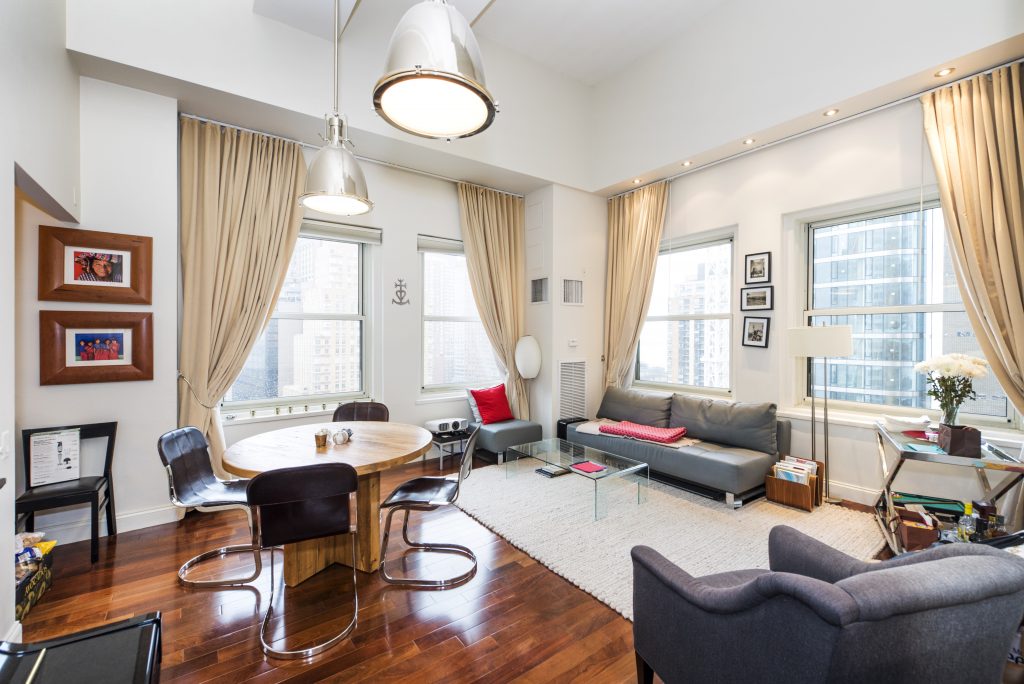
Cash buyers
Foreign investors purchasing in cash save on the New York mortgage tax, about 2% of the loan amount. In addition, the cash buyer saves various bank related fees.
Transaction costs
For the seller, transaction costs are about 5% to 8% of the selling price and this is driven by the broker commission and transfer taxes.
Transaction costs for a Manhattan condominium
Taxes, taxes, taxes
The categories of taxes are:
-
- Property tax-These are reflected as a monthly expense with each condo and paid quarterly. If there is a mortgage, the bank could escrow the tax amount. This means collecting and paying on behalf of the owner. For properties without tax abatement, this tax is roughly 1 percent of the price per year.
- Capital Gains Tax – depends on how ownership is held.
- Annual Operating Tax – This refers to annual taxes on profits assuming the property is rented out. The U.S. government allows depreciation of property every year. In Manhattan, 50 percent down payment is typically required for rental income to offset carrying costs including financing. Hence, assuming break even cash flow, the depreciation allowance creates a NEGATIVE taxable income. This means no operating taxes for the owner. However, depreciation needs to be recaptured at time of sale.
- Estate tax-The largest tax exposure to a foreign property owner (compared to a U.S. owner) is the estate tax. U.S. law is such that if a foreign owner passes away, estate taxes could be as high as 50 percent. An experienced attorney can advise on structures to reduce this risk.
- Property tax-These are reflected as a monthly expense with each condo and paid quarterly. If there is a mortgage, the bank could escrow the tax amount. This means collecting and paying on behalf of the owner. For properties without tax abatement, this tax is roughly 1 percent of the price per year.
We have tax attorneys and accountants in our network who are qualified to advise our clients on all the above tax matters.
Deal example: Dining area of client’s prewar condo in Greenwich Village. This was a turnkey apartment, fully renovated and we didn’t even have to repaint. Received 4 applications on the first day of showing for rent.
How does the agent fee work when buying or selling?
Starting in Jan 2024, sellers pay the sell side commission and has the option (but is not obligated) to also cover the buy side commission. Buyers are responsible for their buy side fees if the seller does not cover it.
Access to inventory: The property inventory in New York is openly accessible to all. For example, if there are 5,000 listings for sale at a given point in time, all brokers and consumers have access to this inventory. There is no restricted or exclusive access given to certain brokers. Brokers usually access the inventory through the broker system while consumers can access them through websites like Streeteasy.com and Trulia.com. Any broker can bring a buyer client to view any property. As such, the value of a buyer’s broker is in identifying and negotiating the good buys. The value is not in getting access to properties.
The fiduciary responsibility of the buyer’s agent is to the buyer while the fiduciary responsibility of the seller’s agent is to the seller – regardless of whether the seller covers any buy side fees. This is just the way the brokerage trade agreement works in New York.
Deal example: Buyer client purchased this one bedroom with rare 500 sqft terrace when building was newly converted to condos, then resold 5 years later for substantial profit.


How does the agent fee work when renting?
It used to be that tenants would be responsible for paying both landlord’s and tenant’s agents. But the Housing Stability and Tenant Protection Act of 2019 made it where each party pays their respective agents’ fees. Security deposit has been limited to one month’s rent and upfront rent payment is no longer permitted.
The courts consequently overturned the HSTPA ruling on who pays agent fees. Currently, it depends. Listings will either specify whether tenant needs to pay all fees or it can be negotiated between landlord and tenant.
Should I use more than one agent?
All agents in New York, through the real estate trade agreement of the Real Estate Board of New York, have access to the same property listings. For example, if there are 5,000 properties for sale in Manhattan, every agent will have access to the 5,000 listings. As such, the brokerage community strongly discourages the buyer on using multiple agents as this creates confusion.
We recommend that a potential client interview several agents and then decide on one. As we will be 100% focused on helping our buyer client identify the right property, we expect client loyalty. This expectation is consistent among all good brokers.
What are the best areas in Manhattan for investment?
It is foolish to recommend a “best area” without first discussing the buyer’s objectives. The risk/reward model applies to Manhattan property which is probably the most efficient property market in the world. An emerging area may have higher expected returns but also comes with higher financial risk such as higher vacancy rate. An established area has lower return but will likely be faster to rent out and prices will not be as dependent on external factors.
Best areas to invest in Manhattan
Does buyer have to be in New York for the closing?
This depends on the bank that is providing the mortgage. Generally, the buyer can assign Power of Attorney (POA) to a representative in New York and hence does not have to be in New York for the closing. The individual assigned the POA can be a lawyer who is given authority to execute contracts specific to the transaction.
Part 2: How We Add Value
Niche focus on foreign buyers
Wei Min Tan is the top New York buyer’s agent serving foreign investors of Manhattan, New York property. Our clients come from regions including North America, Asia, Europe and the Middle East.
Financial background
Leveraging prior careers at Citigroup and American Express, he has a strong financial background which allows us to explain in terms of return on investment (ROI), financial performance, yield and appreciation potential vs other investment options faced by the investor (stocks, bonds, hedge funds). This differentiates us from most agents whose focus is to stress the granite countertop or marble bathroom.
Deal Example: Parc Vendome. Taking advantage of the slow buyer’s market, negotiated a great deal at this classic pre-war property which is steps from Central Park. Totally renovated the apartment and rented out immediately when done.
After renovation:
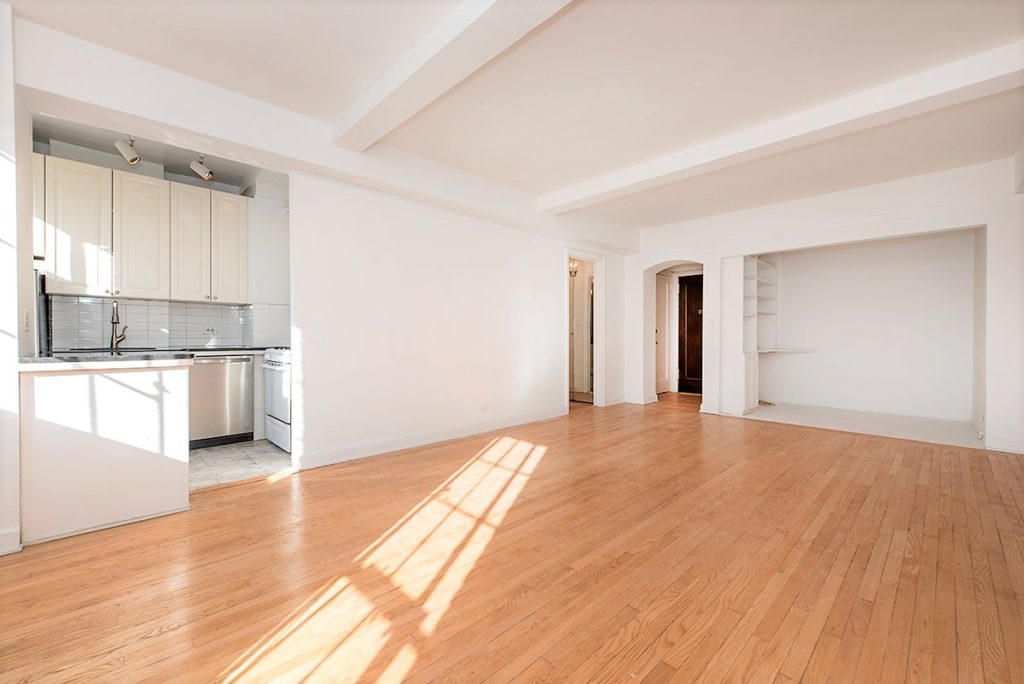
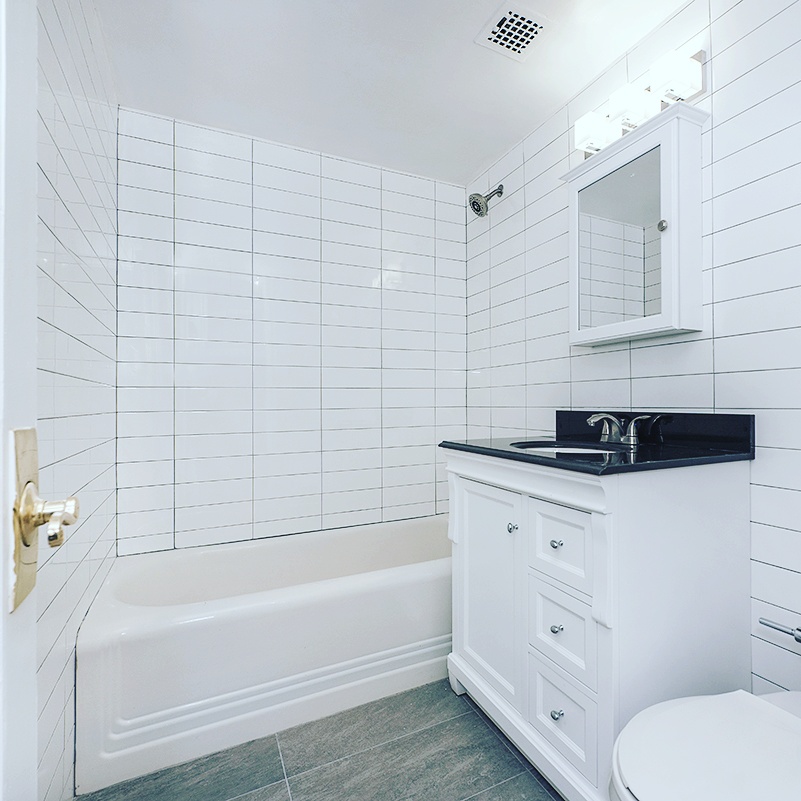
Before Renovation:
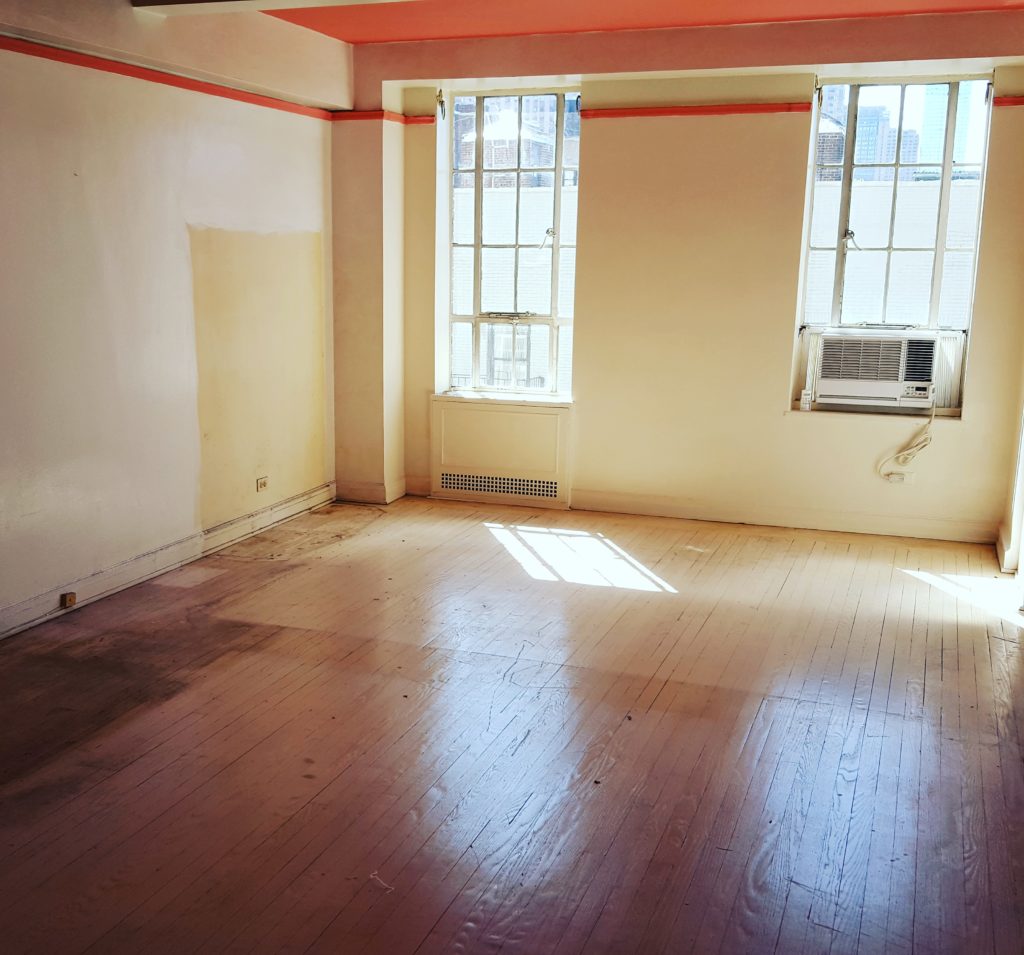
We are also property investors
Wei Min was a property investor before becoming a Manhattan property agent. Our clients benefit from his insights as a landlord.
Market experts
Wei Min is a market expert as evidenced by extensive media appearances and interviews in publications such as the Wall Street Journal, New York Times, Bloomberg, NBC, CBS, TheStreet, Fidelity and CNN.
One stop solution
We provide a one-stop solution to foreign buyers. This includes identifying the right property, negotiating price, bringing the team together (closing attorney, tax attorney, accountant, financing), finding the tenant, dealing with the tenant, eventually marketing the property for sale. The cycle typically starts all over as our clients often want to redeploy capital to buy another property.
Oh yes, we are nice to our clients.
We don’t pressure, create false urgency etc.
Deal Example: The Sutton 959 First Avenue. Development by Toll Brothers. Clients booked at pre-construction. Amazing interior details and classic style windows.
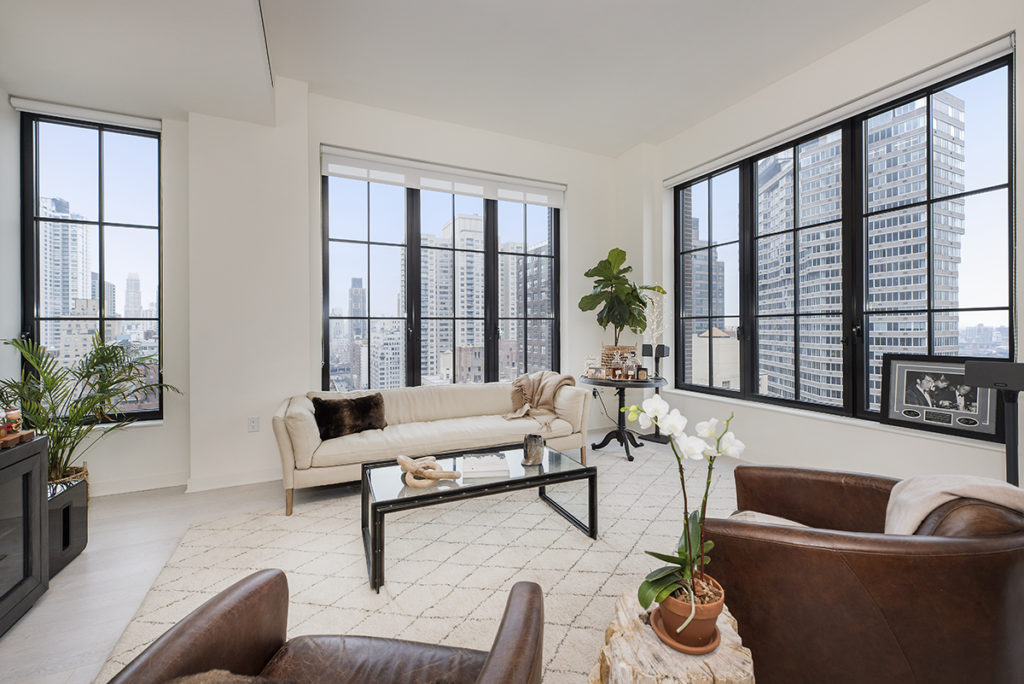
Part 3: Buying Process For Foreign / Overseas Investors
Below is the process for buying a condo in Manhattan, New York. The process is similar for those buying the condo as an investment property or as a vacation home. Main difference is that for investment property buyers, down payment required by the lender is higher.
Estimated Time to closing after identifying property:
With Financing: 10 to 12 weeks
All Cash: 2 to 3 weeks
-
- Obtain pre-approval from lender (1-5 days)
Lender can be a U.S. bank or overseas bank at buyer’s home country with an international mortgage program.
- Identify Property (2 days – several months)
Property viewing can be a pleasurable or tiring experience. Our value is in filtering properties based on the client’s objective to maximize productivity of the client’s time.
- Make offer and negotiate price (1 week)
Negotiation skills are critical. Experienced negotiators could obtain many favorable financial and non-financial terms for the buyer.
- Execute contract (1-2 weeks)
The agreed upon terms are provided to both parties’ attorneys who will prepare the contract. The buyer’s attorney will perform due diligence on the property prior to actual contract execution. Once all is agreed upon, the contract is executed. At this time, a 10% deposit will be required from the buyer to be held in escrow by the seller’s attorney.
- Apply For Mortgage and Obtain Commitment Letter (6-9 weeks).
- Submit condo package to condo board for approval (1 to 4 weeks)
This occurs concurrently with Step 5 above.
- Schedule Closing
At closing, all parties – buyer, seller, bank, attorneys, brokers, will come together at a table. A lot of paperwork is signed and funds will be provided to the seller in exchange for the buyer getting legal title to the property. The deal will be completed at the table and usually no future follow-ups are necessary.
- Obtain pre-approval from lender (1-5 days)
Part 4: Managing The New York Property
After our investor client buys an investment property in New York, the next step is to market to potential renters. We will review income (annual income needs to be 40x monthly rent), financial liquidity and credit history. This formula has worked very well. The lower rental yield to investors comes with a major upside, which is tenants’ high financial and credit quality.
Finding a tenant
-
- Market property to tenants:
Show property to potential tenants/their agents
Convincing presentation on property’s upsides
Marketing (Website, Broker system, Streeteasy, Trulia)
Professional photography
Professional floorplan
Google’s Search Engine Optimization
Social media marketing
- Screen potential tenants (credit score, references, salary, work history)
- Arrange for tenant move-in
- Set up automatic transactions for tenant to automatically deposit monthly rent checks into owner’s account.
- Market property to tenants:
Operational Issues
Problems happen. This ranges from items that the building staff can fix (toilet not flushing properly, screws to tighten, light bulbs to change) to things that are beyond what the building staff can do (administrative coordination of appliance repair or replacement, hiring a plumber etc).
We can be the point of contact for these admin issues. Alternatively, we can refer the owner to a property management company from the beginning . In either case, there is a process in place so the investor owner can have peace of mind knowing that operational issues will be handled.
Part 5: Selling The Property
At time of sale, we can represent the owner as seller’s agent. Marketing the property for sale includes the following activities.
Marketing
Pricing property based on market drivers and financials
Market property using multiple channels to both domestic and international buyers
Leverage our media popularity to gain exposure for the property
Marketing Strategy:
Professionally show property to potential buyers/their agents
Convincing presentation of property’s upsides
Internet marketing (Website, Broker system, Streeteasy, Trulia, Zillow)
Professional photography
Professional floorplan
Google’s SEO
Social media marketing (Facebook, Twitter)
Open houses for broker previews
Open houses on Sunday catering to buyers
Media interviews at property (as opportunity permits)
Broker/potential buyer exposure events at property (as opportunity permits)
Deal example: Represented client in buying and then selling this waterview loft condo. Received multiple offers at sale because of the excellent staging and presentation of the property.
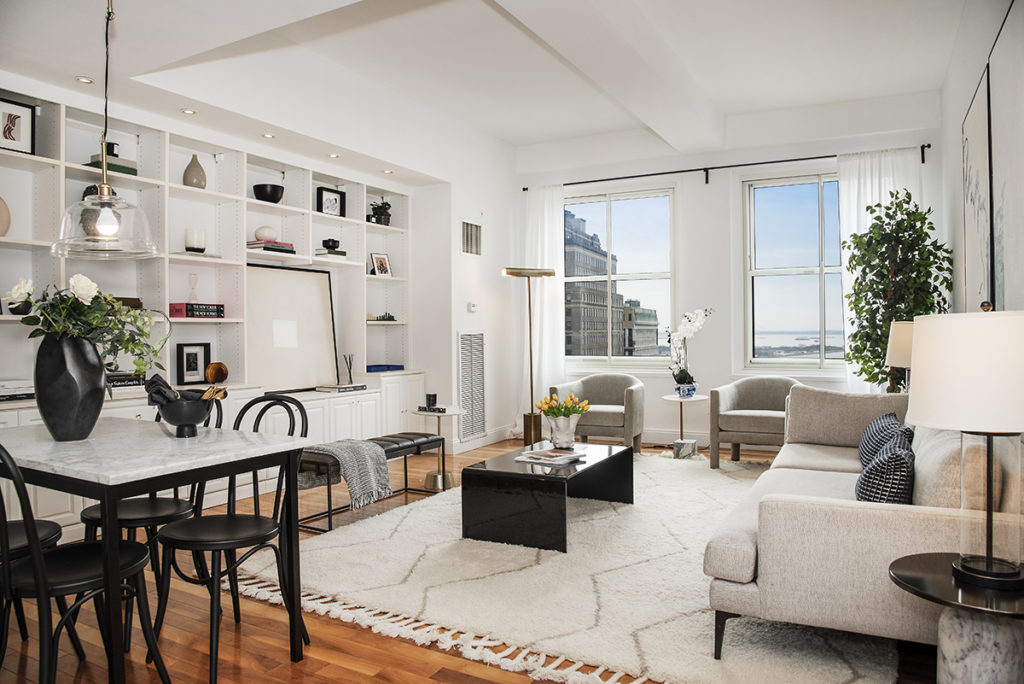
1031 Exchanges and FIRPTA
Refer to 1031 exchange sources for owners who wish to defer tax payments by exchanging to a like-kind investment property. This is an effective portfolio building strategy.
For sellers who are foreigners, there is a withholding tax called FIRPTA (Foreign Investment In Real Property Tax Act) equal to 15 percent of the sale price. This is refundable and is basically the U.S. government’s way to ensure a foreign property owner is up to date on taxes that were due. If the foreign property owner has been reporting taxes annually, the attorney could also request for a FIRPTA exemption.
Weimin’s article, Is now a good time to invest in Manhattan property?
What We Do
We focus on global investors buying Manhattan condos for portfolio diversification and long term return-on-investment.
1) Identify the right buy based on objectives
2) Manage the buy process
3) Rent out the property
4) Manage tenants
5) Market the property at the eventual sale





































